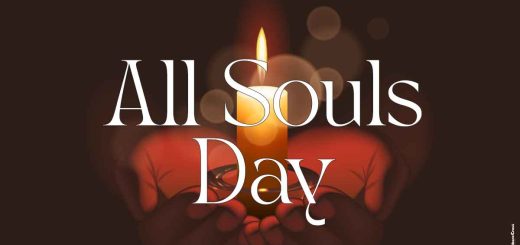Shift from mosquito net to internet
�Your Eminence, Your Beatitude, Your Grace, your Excellencies, Your Paternity, Monsignor, Reverend Fathers, Reverend Brothers, Esteemed Professors, Ladies and Gentlemen.�� Thus began virtually every speech at an event I recently attended.

“Socially it is still, however, a deeply hierarchical society�and Church. Hence the roll call of titles at the beginning.”
I was in Bangalore in India at a major international conference talking about Vatican II and there were ecclesiastical dignitaries from all over the world attending.� Most of the talks were looking at the past�what happened at Vatican II or in its aftermath.
By contrast, I was there to talk about the present. I was explaining what we have been doing�and by �we� I mean the Jesuit Institute, The Southern Cross, dozens of other organisations and you the reader�with Hope&Joy, our successful attempt to share among ordinary Catholics the importance today of Vatican II.
It is strange that the conference was so backward-looking since India is a country which is certainly not. It is powering forwards and if the country is in 4th gear, Bangalore is on turbo in 5th. Shed your images of picturesque sleepy villages with cows flicking away the flies and a woman sitting cross-legged making chapattis.
The mosquito net has been replaced by the internet. And the chapattis now come frozen ready to be zapped in the microwave while the high-tech young professional is surfing multiple channels on a Wi-Fi enabled Indian-imitation iPad.
Bangalore is a city of slick shopping malls, well-groomed young people on snappy scooters and luxurious high-rise apartment blocks.
While our economy struggles to break through to 2% growth per year, India is motoring at 7% and Bangalore is the sparkplug in the motor (literally�have a look at where your Bosch sparkplugs were made and it was probably not Germany).
Of course, the rising tide of India is not carrying all ships with it and there is still immense poverty sitting side-by-side with increasing visible wealth. That will all sound too familiar to South Africans.� But in India even the poor seem to be taken up with the momentum of economic growth.
What is intriguing in this mix is the role of religion. It used to be assumed by Europeans, reflecting on their own emptying churches that, as countries modernised and became more prosperous, the importance of religion would decrease. But in India (as in many other countries) this is not the case. Hinduism is undergoing a major religious and political resurgence.� And even the Catholic Church here is looking healthy and vibrant. There are young people at Mass and joining sodalities, Catholic schools are full to bursting, and the seminaries are overflowing with talented, intelligent young men. One future priest I met had joined his order only after getting a Masters degree in computer science�he chose the CMI over IBM.
A pair of Economist journalists in a book called God is Back tried to explain this unexpected return of religion. Their thesis is that when religions actually have to fight in a competitive marketplace they become more attuned to what their potential followers want and so gain more followers as a result. I suspect it is more complex than this consumer-driven religion-on-demand, but the Catholic Church in India clearly knows that it is not the only game in town and has to fight for attention.
One of the ways in which it does that is through education.
The campus where we were is one of five major Catholic universities in the city, each with a magnificent campus and thousands of students�this despite the fact that Catholics make up only 1% of the population. The Church knows that in a country where it would otherwise be squashed, education is its historical strength. By investing in it the Church not only reinforces its own relevance but also benefits wider Indian society.
There is much inequality in the country and yet, as seen in Slumdog Millionaire, a belief that people can rise from the slums and make a success of their lives. And education is the key to unlocking that.
Socially it is still, however, a deeply hierarchical society�and Church. Hence the rollcall of titles at the beginning.
I am pleased to say that the hot air was finally punctured by none other than the former archbishop of Bangalore who is the only Indian man still alive who actually attended Vatican II as a bishop.
When he stood up to make his speech he pointed out that Vatican II had sought to do away with triumphalism and clericalism. So he would simply greet everyone as �brothers and sisters�.
Attending the conference from South Africa were Fr Michael van Heerden from St Augustine’s, Fr Philippe Denis OP from the Univeristy of Kwazulu-Natal and Raymond Perrier from the Jesuit Institute.
- Fraternity Across the Lines - October 30, 2025
- Compassion and Consolation - September 3, 2025
- The Church in the Modern World - July 14, 2025





